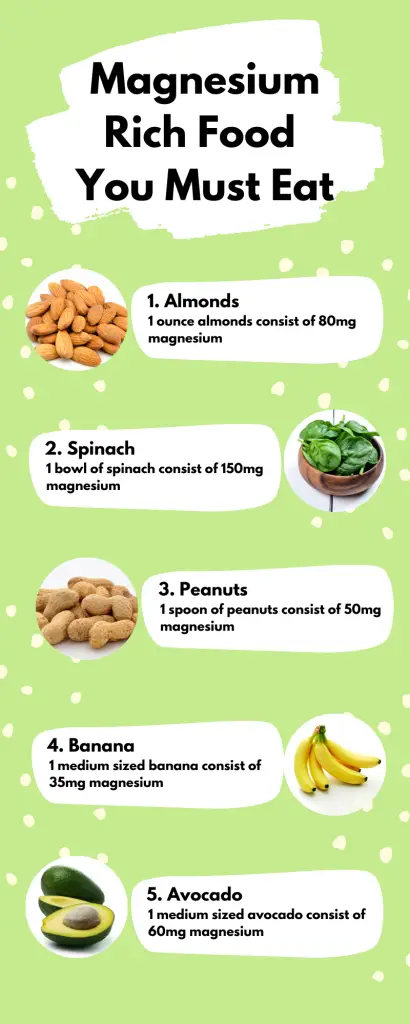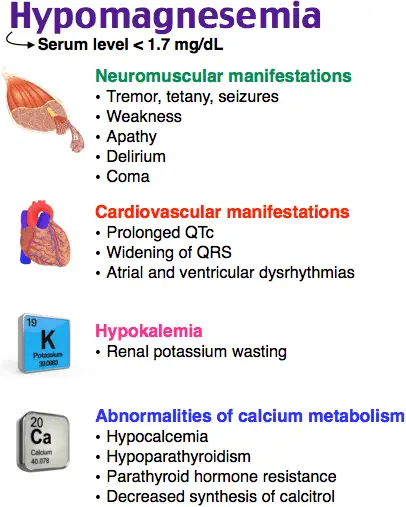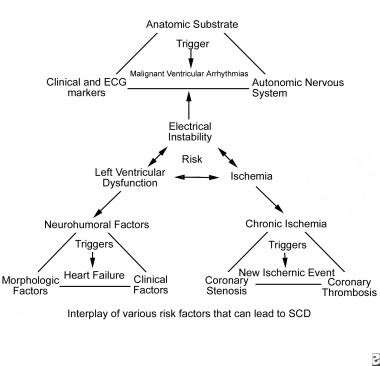Magnesium supplements and heart disease complement each other. Sudden cardiac death continues to present an important challenge in the United States.
Magnesium Supplements and Heart Disease
Major difficulties exist in identifying individuals at risk prior to an episode of ventricular tachycardia or a sudden cardiac arrest.
Magnesium deficiency causes sudden death. Magnesium supplements and heart disease complement each other. In this article, I will discuss the importance of magnesium supplements and heart disease.
The definition of sudden cardiac death is a natural death due to cardiac causes by an abrupt loss of consciousness and death within an hour of the onset of acute symptoms.
There is evidence that low magnesium can contribute to sudden death. Magnesium supplements and heart disease complement each other.
Why Does Magnesium Deficiency Cause Sudden Death?
Magnesium, an abundant mineral in the body, is naturally present in many foods, and, available as a dietary supplement.
Magnesium is also present, in some medicines such as antacids and laxatives. Magnesium is also readily available in magnesium supplements.
Magnesium is a cofactor in more than 300 enzyme systems that regulate diverse biochemical reactions in the body, including protein synthesis, muscle and nerve function, blood glucose control, and blood pressure regulation.
Magnesium is required for energy production and glycolysis. It contributes to the structural development of bone and is required for the synthesis of DNA, RNA, and the antioxidant glutathione.
Magnesium also plays a role in the active transport of calcium and potassium ions across cell membranes, a process that is important to nerve impulse conduction, muscle contraction, and normal heart rhythm. This is why magnesium deficiency causes sudden death.
Magnesium Deficiency and Sudden Death: Incidences
According to research, Sudden cardiac death (SCD) is a major public health problem, comprising more than half of all cardiovascular disease (CVD) deaths in America.
- Even with estimates of coronary heart disease (CHD) mortality declining by more than 50% from 1955 to 1999, the relative proportion of SCD of all CVD deaths in the USA simultaneously increased during this time.
Major risk factors for SCD include:
Hypertension
Diabetes
Smoking
A family history of myocardial infarction
Obesity, but the majority of SCDs occur in those with no prior history of CVD.
Metabolic syndrome

Why Does Magnesium Deficiency Cause Sudden Death:
Cardiac arrhythmias and coronary artery vasospasm can be caused by magnesium deficiency. Evidence has shown that intravenous Mg reduces the risk of arrhythmia and death immediately after acute myocardial infarction.
Magnesium also plays a role in the active transport of calcium and potassium ions across cell membranes, a process that is important to nerve impulse conduction, muscle contraction, and normal heart rhythm.
Magnesium Deficiency and Sudden Death: Magnesium Supplements
Magnesium deficiency and sudden death. People should take 5 mg of magnesium for every pound.
For example, a 200-pound person should take 1000 mg of magnesium to bowel tolerance. There are several forms of magnesium. Magnesium Taurate has the most benefits according to evidence.
However, there are many forms of magnesium and the one that people should take is the one that you can tolerate.
Types of Magnesium
1. Magnesium Amino Acid Chelate
A mineral chelate form of magnesium-containing an ion of magnesium oxide connected to a mixture of some other form of amino acid. This could be a lactate, a glycine, aspartate or arginate, etc. The best-chelated amino acid form of magnesium is aspartate or arginate.
2. Magnesium Oxide
Also referred to as “Magnesia”, magnesium oxide is commonly used therapeutically as a laxative and relief for acid reflux. This type of magnesium shows high levels of concentration, but poor levels of bioavailability (only 4%).
3. Magnesium Citrate
Derived from the magnesium salt of citric acid, this form of magnesium has lower concentration, but a high level of bioavailability (90%). Magnesium citrate is commonly used as to induce a bowel movement but has also been studied for kidney stone prevention.
4. Magnesium Orotate
The most effective form of magnesium supplement, created through the use of the mineral salts of orotic acid. Both plants and animals use orotates to create DNA and RNA. Extensive scientific research by Dr. Hans A. Nieper, M.D. shows orotates can penetrate cell membranes, enabling the effective delivery of the magnesium ion to the innermost layers of the cellular mitochondria and nucleus. Magnesium orotate contains many properties that can help protect you and your health while offering your cells the most readily absorbable form of magnesium on the market today.
5. Magnesium Chloride
A form of magnesium showing moderate concentrations, but higher levels of bioavailability when compared to magnesium oxide. Magnesium chloride has many uses, most commonly to help manufacture paper, some types of cement and fireproofing agents.
6. Magnesium Lactate
Magnesium lactate is a mineral supplement that is most commonly used for treating digestive issues. Magnesium lactate should be avoided by those with kidney disease or kidney-related problems.
7. Magnesium Sulfate
An inorganic form of magnesium with an elemental concentration of 10% and lower levels of bioavailability. Magnesium sulfate contains magnesium and sulfur and oxygen; it’s commonly referred to as Epsom Salt.
8. Magnesium Carbonate
This form of magnesium has moderate levels of elemental concentration and 30% bioavailability rates. Magnesium carbonate has a strong laxative-effect when taken in high amounts. It is also commonly known as chalk and is used as a drying agent by pitchers, gymnasts, rock climbers, and weightlifters.
9. Magnesium Glycinate, Malate & Taurates
Chelated forms of magnesium are less concentrated, but the magnesium in them is a much more bioavailable form. All three types of magnesium have a variety of uses, but none are as beneficial as the previous magnesium supplements listed above.
Conclusion
Magnesium is a wonderful mineral for the heart. There are many types of magnesium that are available. Research has shown that people who have sudden cardiac death have a magnesium deficiency. Supplements are a wonderful source to get the daily required magnesium.
See Also
Reference:
Chakraborti S, Chakraborti T, Mandal M, Mandal A, Das S, Ghosh S. Protective role of magnesium in cardiovascular diseases: a review. Mol Cell Biochem. 2002;238:163–79. [PubMed]





